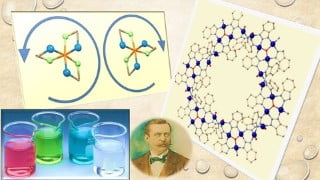Mastering Chemistry (Revision Part 1)
This comprehensive revision course provides a thorough overview of chemistry and biochemistry topics, preparing students for IGCSE and GCE ‘O’ levels. With examples, exercises, and real-world applications, students can deepen their understanding and practice critical thinking skills. Suitable for undergraduate and graduate students in life sciences, as well as those studying AP/IB/GCE ‘A’ levels, this course covers separation techniques, atomic structure, chemical bonding, and more. Ideal for Year 9/10 IGCSE/IB/AP/GCE ‘O’ Levels Chemistry students and individuals seeking early exposure to the field.
This revision course is the first part of a 4 part course, and provides a comprehensive overview of the following topics used in chemistry, biochemistry, and related fields. The focus of the course is to fully prepare students pursuing IGCSE and GCE “O” levels. The course will also provide numerous examples and exercises to help students gain a deeper understanding of the material.
Throughout the course, students will be challenged with multiple choice questions and multiple selection questions to test their knowledge and assess their understanding of the material. Additionally, the course will provide opportunities for students to practice critical thinking and problem-solving skills, as they apply the concepts learned in the course to real-world scenarios.
This course is designed for students who have a basic understanding of chemistry and biochemistry, and is suitable for students in undergraduate and graduate programs in the life sciences and related fields. It will also be useful for students currently studying AP / IB / GCE ‘A’ levels who wish to revise on basic fundamentals.
Topics covered in this set of revision course include:
Separation Techniques
Filtration
Evaporation till dryness
Crystallization
Simple distillation
Fractional distillation
Paper chromatography
Sublimation
The Particulate Nature of Matter / Kinetic Particle Theory
Arrangement and movement of solid, liquid and gaseous particles
Heating curve
Rate of diffusion (including porous pot)
Elements, Compounds and Mixtures
Properties of elements
Properties of compounds
Properties of mixtures
Differences between elements, compounds and mixtures
Atomic Structure
Calculating number of protons, neutrons and electrons in an atom
Defining a cation / an anion and an isotope
Electronic configurations on atoms and ions
Calculation on isotopes
Chemical Bonding
Definition of ionic bonding and properties of ionic compounds
Chemical formulas on ionic compounds
Definition of covalent bonding and properties of covalent molecules (Both simple covalent molecules and giant molecular structures)
Chemical formulas on covalent molecules
Definition and properties of metallic bonding
Mole Concept and Stoichiometry
Balancing chemical equations
Mole concept formulas
Limiting reagents
Percentage purity
Percentage yield
Percentage composition by mass
Empirical and Molecular formulas
For students with further questions, do feel free to ask me under the Discussion section.
Who this course is for:
- Students pursuing Year 9 / 10 IGCSE / IB / AP / GCE ‘O’ Levels Chemistry
- Individuals interested in early exposure to the field of Chemistry
User Reviews
Be the first to review “Mastering Chemistry (Revision Part 1)”
You must be logged in to post a review.







There are no reviews yet.